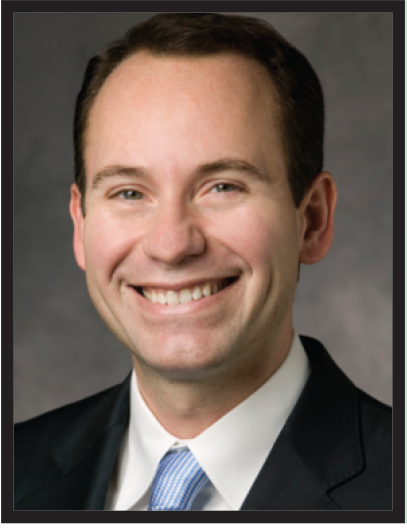Collaboration Is Needed
 by John M. Morton, MD, MPH, MHA, FACS, FASMBS, ABOM
by John M. Morton, MD, MPH, MHA, FACS, FASMBS, ABOM
Clinical Editor of Bariatric Times; Vice-Chair of Quality and Division Chief of Bariatric and Minimally Invasive Surgery in the Department of Surgery at Yale School of Medicine in New Haven, Connecticut.
Dear Friends and Readers,
As we slowly emerge from this past year of pandemic, I look for lessons learned that we can apply to the stated mission of this publication and my life’s work—namely, alleviating the burden of disease engendered by obesity. As a surgeon, I hold the keys to the kingdom of both understanding and treating obesity. Surgery has never been more safe or effective. However, my keys only open one door in society’s palace of a hundred lives. How do we help those who want to help themselves and others? By reaching out across the aisle, looking folks in the eye, shaking their hand (yes, we will again) and being authentic. We have to partner with everyone. While bariatric surgeons are a hardy band of brothers and sisters, we are approximately 2,500 at most. We will need help to reach our patients.
The great pandemic opened the nation’s coffers in an unprecedented manner. Not millions, not billions, but trillions will be spent to combat COVID-19. As we know, the two greatest risk factors for COVID-19, and its consequences are age and weight. While age is a nonmodifiable risk factor, weight is a modifiable risk factor. We are blessed with bariatric surgery, many devices, and multiple medications. Adding to this arsenal of care is better understanding of the disease. These COVID-19 dollars that are coming to your hospital, state, and country can and should be used to treat and understand obesity. If we are to advocate for coverage, we need to do it together—surgeon, physician, nutritionist, psychologist, psychiatrist, physiologist, nurse, physician assistant, pharmacist, payor, and, most important of all, patient. Where will this coalition come from? The Obesity Action Coalition is a natural starting point, but we will need all the societies to look beyond their own specific interests and come together for the greater good of our patients. I see fraying and tears in the fabric of our societies’ work together, from joint meetings becoming individual meetings to therapy becoming or, not and/or. Like all relationships, they need to be mended and cared for. It is important. We will need help to advocate.
We can also partner generationally. I have practiced for over 20 years and welcome new peers annually. We need to impart the hard-fought wisdom learned over the years and ask all the societies to consider creating a mentoring program to foster interaction. A saying I like to repeat is: “A smart person learns from their experience—a wise one learns from others’ experience.” It is very difficult to start a new practice. A generation ago when you started a new practice, you had the benefit of senior partners to guide you regarding patients and interactions, to vouch for you and gently set a new course when needed. This was especially true when practices were physician-owned, when interests were aligned. By and large, we are now employees, and our financial allegiance is generally corporate. It is now that professionalism matters the most. A hallmark of professionalism is the ability to self-regulate. This ability to self-regulate can only come from the house of medicine. Mentorship matters from senior surgeon/physician to junior surgeon/physician. It is important. We will need help to grow and maintain.
Change is coming. Optum has already introduced a new program that incorporates medical and surgical weight loss for its employees from a realization that obesity is a cost multiplier for healthcare costs. Published reports of the medication semaglutide indicate almost 20-percent weight loss. Where will surgery fit into these new paradigms? Time, data, and observation will reveal. With these new, potentially disruptive initiatives, bariatric surgeons will need to collaborate. It is important. We will need help to reach all those in need.
Sincerely,
John M. Morton, MD, MPH, MHA, FACS, FASMBS, ABOM
Category: Editorial Message, Past Articles




